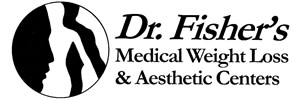 |
161 Bustleton Pike Feasterville, PA 19053 (215) 987-4592 more locations here... |
| The Benefits of Warm Ups |
 |
| Sunday, 28 February 2010 |
|
Before sprinting off into the distance, it is important to warm up first. Like the name implies, warming up gets the body prepared for a more vigorous workout. It's like your car. In the morning, especially winter mornings, the car may not turn over the first time you try to start it. Gas can settle in the bottom of the tank overnight as the temperature drops. It takes a few minutes after you get it started for the inner workings to get going. The same goes for your engine. After a night of sleep or a day of regular activity, your muscles are tight. They need to limber up a little before you go full tilt into your workout. Otherwise, you risk serious injury and a blow to your motivation. If you are thinking that you can get away without warming up, just read the benefits of warm-ups that you may not have been enjoying up until now: 1. Your heart rate rises slowly. The body gets prepared to exercise. You won't feel like your heart is beating out of your chest within five minutes. Your blood gets time to circulate properly and send rich oxygen to feed those muscles and slow the build-up of lactic acid (what causes those muscle cramps). 2. You can avoid injury. Most injuries come from lack of proper warm-up routines. When the muscles are more pliable, they move easier and resist injuries. Quick twists and turns are tolerated well by the body when all muscles are ready to go. 3. Endurance is increased. When the body is warm and the blood is circulating, you can work out longer. It does take time to build up endurance but you will see potentially greater results with warm-ups than without. 4. It promotes a proper breathing technique. When you go running or play that sport right away, you are less likely to be breathing efficiently. Throughout the warm-up, you are setting your breathing patterns for the entire workout. Breathing in through the nose and out through the mouth can prevent dry mouth and also gasping for air. 5. You sweat sooner. Sweating is usually a sign that your body is warm and reaching its peak of efficiency. Warming up for five or ten minutes at a slower pace will get the sweat rolling. Besides warming up the muscles it is also cooling at the same time. If you haven't had these kinds of experiences, then try warming up first. Besides the benefits, it also helps prevent serious injuries that can stop you from exercising for weeks or even months. |
Profile on Success... CeCe McGhee - Praise 103.9
CeCe McGhee is on a weight loss journey, and it’s going well. Take a look at the slimmer version of Praise 103.9’s Afternoon Angel
Click here for video and photos...
 If exercise is good for the body, why do so many people get injured? That's a good question. Like anything else, you have to ease into exercise and there is a basic method everyone can follow for better results. Don't forget your warm-up.
If exercise is good for the body, why do so many people get injured? That's a good question. Like anything else, you have to ease into exercise and there is a basic method everyone can follow for better results. Don't forget your warm-up.










